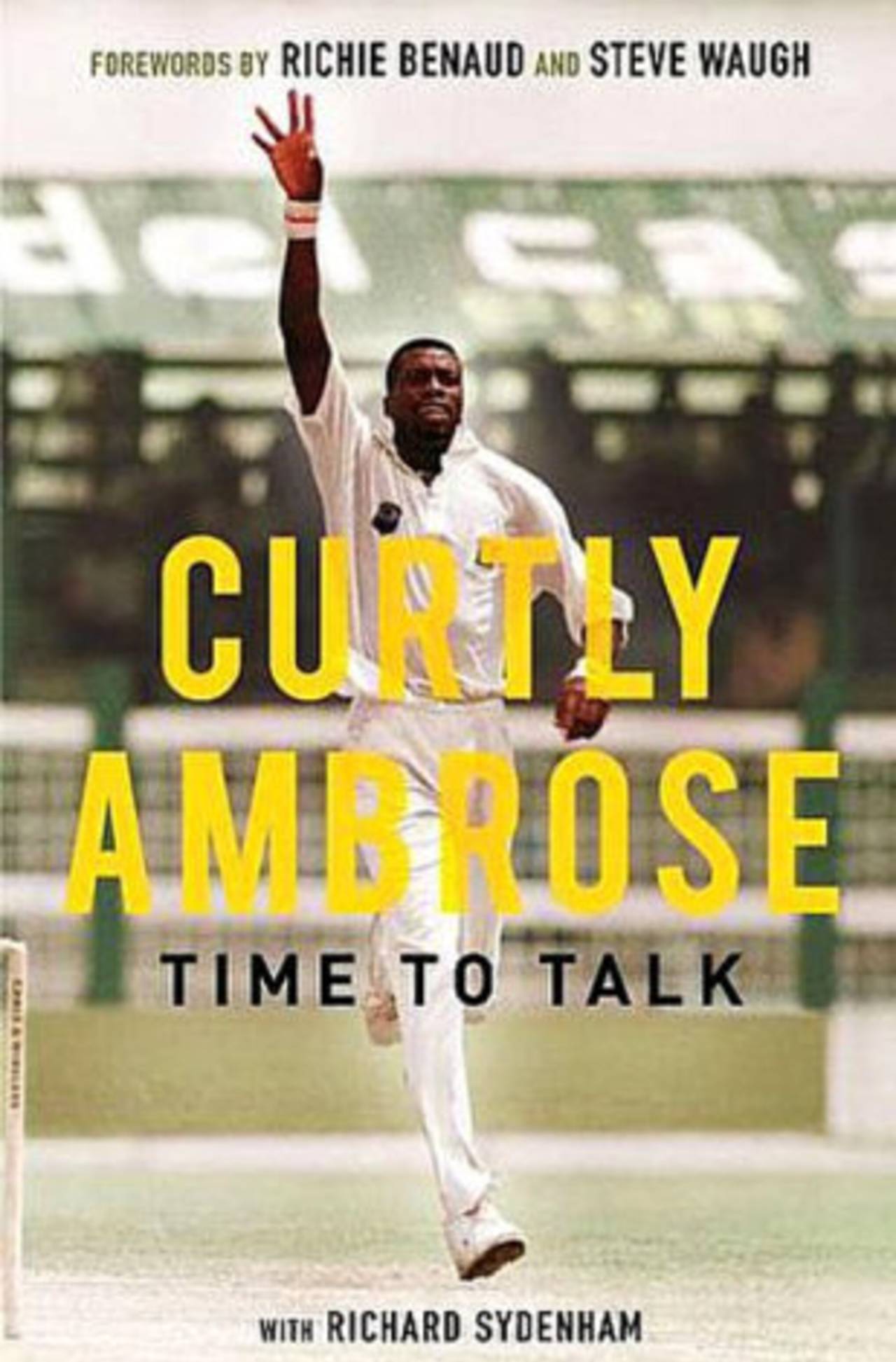Curtly Ambrose's new autobiography,
Time to Talk, isn't lined with revelations akin to those in proliferation across, say, Kevin Pietersen's or Herschelle Gibbs' memoirs. The book doesn't seek to shock, hurt, burn proverbial bridges or dredge through a chequered past. There are no statements to genuinely damage the reputation of recent colleagues, heavily criticise former employers, or undermine predecessors and successors.
Ambrose, however, does humbly deliver a series of insightful opinions - as only a character of his calibre, influence, integrity and self-appointed status as a guardian of fairness could. What he was unable to convey with the ball when he played largely went unsaid; more than a decade since his final over in international cricket, though, he has all but insisted on some public reflection now.
Pride, professionalism, privacy and justice are common themes throughout the tome, which discloses enough about Ambrose to dispel the urban legend that alleged "Curtly talks to no man".
A faithful fondness for Richie Richardson and Courtney Walsh are prevalent, while an entire chapter is dedicated to the complexities of comparing Brian Lara with Sachin Tendulkar. Lara, although lavishly credited as a truly great batsman, doesn't find the same favour with Ambrose as a captain or team-mate. Suggestions that Lara thought he was bigger than the team - and became an insecure leader - are repeated.
Ambrose, justifiably incensed at the time, recalls deliberately bowling three beamers at Dermot Reeve - and still doesn't know why Dean Jones inexplicably asked him to remove his trademark wristbands in
Sydney in 1993. Being called for throwing by umpire Clyde Cumberbatch in 1988, and 1997's
15-ball over against Australia too, live long in the memory. Kenny Benjamin, meanwhile, is inadvertently revealed as the antagonist in Ambrose and Steve Waugh's infamous confrontation in
Trinidad, 1995.
Ambrose was privy to plenty, positive and negative, outside West Indies cricket in his heyday too. David Boon's steely resilience, Mark Waugh's loopholes, the emergence of Jacques Kallis, and England's disservice to Graeme Hick and Mark Ramprakash are all contemplated. Six seasons with Northamptonshire, who purportedly treated their overseas professional rather poorly, truly tested his innate loyalty - and willingness to return despite criminally low remuneration.
Other disappointments include a complete lack of Test match experience in India due to injury and circumstance, the inability to win a World Cup in three attempts, and a peculiar dearth of telling contributions at Sabina Park. A milestone 400th Test wicket in his final series, which required Walsh to vehemently convince Ambrose to play and ended in defeat regardless, ostensibly ended the few unsatisfactory occasions.
While Ambrose's general distaste for the "insular" West Indies Cricket Board is particularly evident, he does well not to elaborate on isolated incidents of discontent with Tony Cozier, Clive Lloyd and the late Malcolm Marshall. Readers would have hoped he would have shared more about a fruitful working relationship with Marshall and reverence for Andy Roberts, though.
Not one to actively indulge in politics and judgement, Ambrose is still characteristically forthright about the supposed mistreatment of the smaller islands in West Indies, challenging Bajan and Jamaican cricketing authorities to accommodate their geographically inferior counterparts. His propensity to flit between patience and annoyance, widespread across Time to Talk, is epitomised on this subject.
The obligatory rhetoric about Test match cricket's superiority to any limited-overs format seems unbecoming of the great fast bowler, but it is duly balanced with entreaties for West Indies cricket to invest more resources and finance in domestic first-class competition - and lure former greats back as meaningful mentors.
No cricketer's autobiography would be complete without a recollection of the individual on-field highs, of which there were plenty for Ambrose, who lists 1990's 8 for 45 against England
in Bridgetown, 1992's 6 for 34 against South Africa
at the same venue and 1993's 7 for 25 against the Aussies
in Perth among the best. A Test batting average of 12.40, understandably, didn't bring many crowning moments - but an irrational need to thrash Andrew Caddick's bowling doesn't go unmentioned. The book is concluded with Ambrose's selection of the 13 best non-West Indian cricketers he watched - or played against. Unsurprisingly five Australians and three Englishman crack the nod. Very intriguingly, a certain New Zealander caps the elite collective.
Time to Talk
by Curtly Ambrose and Richard Sydenham
Aurum Press Ltd
Pages 288, £18.99 (hardback)
Jonhenry Wilson is a cricket writer for Cricket365, SA Cricket magazine and TEAMtalk Media, among others
